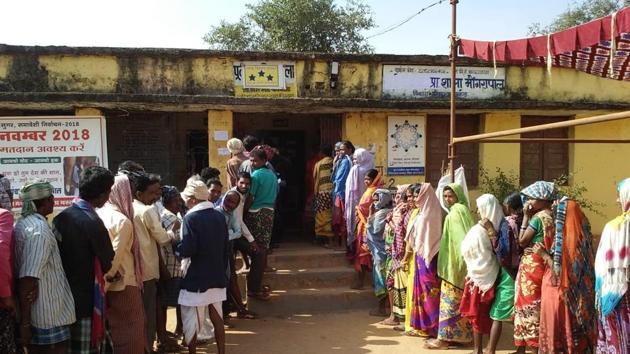Let’s shift towards a new politics of welfare
If the current election rhetoric is anything to go by, our politicians have failed to recognise the potential for change
From manifesto promises to build cow shelters and starting commercial production of cow urine; to statue inaugurations and chief ministers busy making headlines for changing city names rather than changing policy, the political rhetoric this election season is a sad reminder of one of the greatest empirical puzzles of India’s democracy. Why has a democracy, as deeply entrenched and competitive as ours, where the poor vote in far greater numbers than the rich, failed to produce a politics of accountability for the delivery of public goods and services? In other words, why do elections routinely fail in generating meaningful debate on the quality of public services and election results rarely an evaluation of policies and manifesto promises?

This is not to suggest that Indian democracy has failed to produce a politics of welfare. Far from it. In fact I would go so far as to say that welfare schemes are a site of serious political competition. This is best evidenced in the Modi government’s approach to welfare. For all its initial rhetoric on jobs and aspirations, this government has invested significant political capital to take the welfare mantle away from its predecessor, the UPA, by consistently launching grandiose new schemes and renaming old ones — so much so that many, including this newspaper, have argued that the 2019 election is likely to be a welfarist or populist election, focused on the delivery of goods and services and other benefits.
The problem is that this politics of welfare remains restricted to a politics of launching schemes and promises of future hand-outs rather than of undertaking systemic reforms to ensure effective delivery. Lack of political will is a standard trope trotted out in almost every popular and academic debate on the quality of public services in India. The problem, as political scientists Devesh Kapur and Aditya Dasgupta have argued, lies in the fact that while the electoral returns to announcing new schemes are clear, the returns on investments in strengthening state institutions to ensure schemes are implemented well are far more diffused. This is why even ostensibly simple investments, such as staffing India’s chronically under resourced local administration, are rarely a political priority.
The problem of incentives is compounded by the fact that the nature of reforms needed to improve public services and meet voter aspirations is increasingly more complex. Improving education, for instance, is no longer about building a school. Rather it is about creating institutional systems that improve learning quality. This is a complex reform for which there are no clear pathways or short term quick fixes and thus no immediate political gains.
In the absence of incentives to invest in implementation, during elections, the politics of welfare is inevitably reduced to a political competition for populist hand-outs and cash. This is what political scientists have termed “vote buying”.
Why do voters respond to vote buying strategies? And what will it take to shift the needle toward a more robust politics of welfare implementation in India? These are questions that political scientists have long puzzled over. A recent paper by Oliver Heath and Louise Tillin, based on a survey of voters in Madhya Pradesh and Chhattisgarh, offers some important insights relevant for the season’s elections.
Chhattisgarh, under Raman Singh, as has been widely documented, undertook serious institutional reforms to substantially improve the delivery of the public distribution system and the MGNREGA. These reforms were crucial to the Raman Singh government’s bid for political legitimacy and managing the social costs associated with opening the state to the extractives industry. Madhya Pradesh (MP), on the other hand, under Shivraj Singh Chouhan, adopted an agriculture-focused rather than welfare-led reform agenda.
Exploiting these differences, Heath and Tillin ran an experimental survey to understand voter choices. They found that voters residing in the relatively better functioning institutional context of Chhattisgarh were less responsive to small-scale “vote-buying” strategies compared to their neighbours in MP. These differences blurred as the size of the hand-out increased (from food to jobs) but the fact that voters were making different choices in Chhattisgarh holds important lessons. Voters are susceptible (likely to vote in favour of) to “buying” tactics when institutions are weak and voter confidence in the ability of governments’ to deliver public goods is low. Quite frankly, this is only rational.
Ironically, the only way to break this cycle, as Chhattisgarh’s voters indicate, is if politicians are willing to invest in institutional reforms. Sadly, if the current election rhetoric is anything to go by, our politicians, even those in Chhattisgarh, who have the opportunity to build on their own success, have failed to recognise the potential for change. The 2019 polls will be fought in the grammar of populist vote-buying and dangerous communalisation. But can we wish for a different election in 2024?
Yamini Aiyar is president and chief executive, Centre for Policy Research, New Delhi
The views expressed are personal



